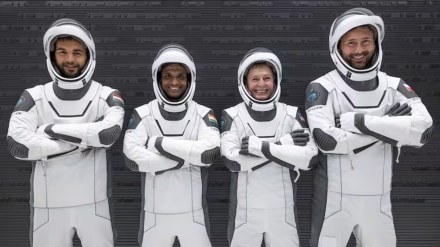Space tourism gets a premium upgrade as Axiom Space offers a deeper, longer, and more purposeful journey to space — for a hefty price tag.
While companies like Blue Origin and Virgin Galactic offer brief suborbital experiences, Axiom Space is redefining space tourism. At a staggering $70 million per ticket, passengers aren’t just going to the edge of space for a few minutes — they’re headed to the International Space Station (ISS) for a two-week mission.
CEO Tejpaul Bhatia says it’s not just a ride; it’s a complete transformation. “It’s a full-on enterprise,” Bhatia told Business Insider, explaining that the ticket includes a year-long astronaut training programme that meets NASA standards, even if it’s not as intensive as NASA’s own astronaut prep.
All about the $70 million experience
According to Bhatia, passengers spend 8 to 12 months preparing for the mission. Training, which includes 700 to 1,000 hours of instruction, is conducted with global space agencies like NASA, ESA, JAXA, and SpaceX. This includes simulations, spacecraft systems training, emergency procedures, and microgravity adaptation.
Before liftoff, astronauts go through quarantine protocols, wear masks during interactions, and are evaluated by international partners. Once in orbit, they spend their time on a strict daily routine involving scientific experiments, media appearances, and system operations.
Even with the high price tag, Bhatia warns, the ISS is not a five-star hotel. “It’s a rugged experience,” he said. “Not a comfortable place.” Passengers sleep in small pods, follow a regimented schedule, and must adapt to zero gravity. Each minute is accounted for — there’s little downtime.
The return to Earth involves a “small splashdown” in the ocean via SpaceX’s Dragon capsule, followed by a readjustment period and extensive medical evaluations.
Who’s buying these tickets?
The missions are open to individuals, governments, space agencies, and research organisations, with costs varying based on mission goals. Axiom doesn’t build its own rockets, instead partnering with SpaceX for transport. For countries like India, Poland, and Hungary — who are participating in the upcoming AX-4 mission — the $70 million fee is seen as a cost-effective alternative to building national space programs.
“It’s a drop in the bucket,” Bhatia says, compared to what it cost the US to build the Apollo program — around $237 billion in today’s dollars.
Axiom is building the first commercial space station to replace the aging ISS by 2030. These private astronaut missions are stepping stones toward a larger vision of long-term human presence in space.
Despite criticism of high-cost space trips — especially after Blue Origin’s celebrity missions — Bhatia is unfazed. “Space and Earth are not mutually exclusive,” he says. For him, this is about making space accessible.
As for his own journey, Bhatia hasn’t flown yet. “It’s become more of a mission for me to figure it out for others,” he said.
